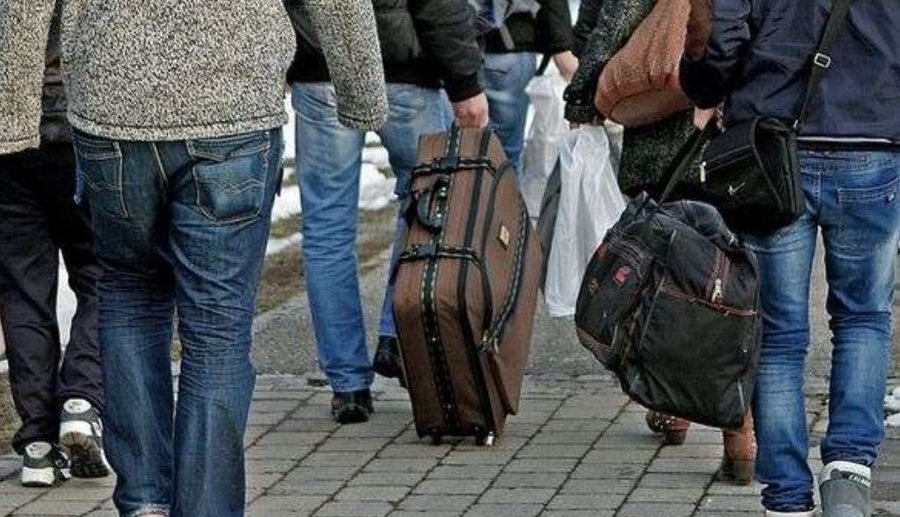
Since visa liberalization on January 1st of last year, the number of asylum seekers from Kosovo in the European Union has increased significantly. Now, a proposal from the European Commission could force them to return to Kosovo.
This is because the European Commission has proposed that asylum seekers from Kosovo and six other countries be allowed to return to their homelands faster, because it considers them to be safe countries, reports A2.
It now remains for the European Parliament and Council to approve this proposal or not for the seven countries - Kosovo, Bangladesh, Colombia, Morocco, Tunisia, Egypt and India - from which a total of 200,000 people applied for asylum last year.
Just last year, the number of asylum seekers from Kosovo increased significantly compared to previous years.
What influenced this growth?
From January 1, 2024, after many years of waiting, Kosovars have been able to travel through the 29 member countries of the Schengen area, mainly EU member states, without the need for a visa.
This visa liberalization allows visa-free travel for only up to 90 days - within six months - to any of the 29 member states of the Schengen area.
In principle, visa-free travel should be for tourist visits, family matters or similar purposes, and not for work or other benefits. However, even before the liberalization, numerous organizations had warned that visa liberalization could worsen the migration trend from Kosovo.
And, data from the EU's statistical office (Eurostat) shows that exactly this has happened.
Although not at the levels that many non-governmental organizations had warned about, the trend of increasing asylum seeker requests is continuing this year.
As in previous years, France remains the main destination for Kosovars seeking asylum in European Union countries, followed by Germany.
Germany has also been targeted by many Kosovars in recent years due to the simplified employment procedures. However, since the procedures for obtaining a work visa have been simplified, these people are not included in asylum applications and the number is smaller.
Among asylum seekers from Kosovo to the EU, the majority are young people under the age of 18 and men. However, in recent years, the difference in the number of female and male asylum seekers has decreased.
Following visa liberalization, the number of Kosovars forced to return to Kosovo has also increased, as part of agreements for the readmission of citizens whose asylum requests are rejected or who are caught staying illegally.
In the first quarter of this year alone, almost half of all those readmitted during 2023, before liberalization, have returned.
Most of them return from European Union countries.
What could be the consequences?
In addition to being included in the list of countries where the EU intends to return asylum seekers in an accelerated procedure, the trend of higher applications also jeopardizes the visa liberalization agreement.
The European Union has in place the so-called Visa Suspension Mechanism. With this mechanism, a non-EU country, such as Kosovo, can have its visa exemption temporarily suspended if it abuses it.
There are four scenarios where the Visa Suspension Mechanism would be activated:
In case of a significant increase - over 50% - in irregular migration.
In case of a significant increase - over 50% - in asylum applications with a low acceptance rate, around 3-4%.
In case of a decline in cooperation for the repatriation of citizens who are excluded from the EU, as a result of irregular stay.
In case of an increased risk to the security of EU Member States, in particular for serious criminal offences.
So far, the EU has not expressed concern about an increase in migration or asylum applications from Kosovo, nor have organizations representing businesses from Kosovo expressed concern that workers are leaving en masse.
However, this year the EU is considering the possibility of tightening this mechanism in such a way that it would be easier to return the visa regime to 61 countries, which includes Kosovo and other Western Balkan countries./ REL
(A2 Televizion)











